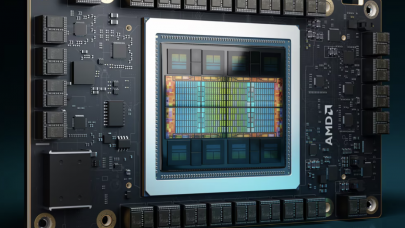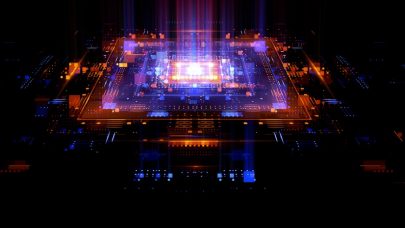TROY, Mich., Oct. 10, 2024 — Altair, a global leader in computational intelligence, and researchers from the Technical University of Munich have made a major breakthrough in the field of quantum computing for computational fluid dynamics (CFD). The breakthrough, published in the journal Computer Physics Communications, presents runnable code for quantum computers and quantum simulators that overcomes several key challenges of the quantum computing implementation of the Lattice-Boltzmann Method.
![]() The paper, titled “Quantum Algorithm for the Lattice-Boltzmann Method Advection-Diffusion Equation,” was developed under a research grant from Altair and driven by researchers from the Technical University of Munich. It is a significant contribution to the field of applied quantum computing that underscores Altair’s commitment to pioneering technologies. The paper was co-authored by Altair Vice President of CFD Solutions Christian Janssen and former Altair Chief Technology Officer Uwe Schramm.
The paper, titled “Quantum Algorithm for the Lattice-Boltzmann Method Advection-Diffusion Equation,” was developed under a research grant from Altair and driven by researchers from the Technical University of Munich. It is a significant contribution to the field of applied quantum computing that underscores Altair’s commitment to pioneering technologies. The paper was co-authored by Altair Vice President of CFD Solutions Christian Janssen and former Altair Chief Technology Officer Uwe Schramm.
“Altair is committed to pushing the boundaries of simulation technology,” said Christian Janssen, vice president of CFD solutions, Altair. “Our GPU-powered CFD tools have set the standard for efficiency and accuracy. Now, we’re exploring the revolutionary potential of quantum computing to tackle even more complex simulations, opening up new possibilities for innovation in product design and engineering.”
The research presents, for the first time, a generic quantum CFD algorithm for three-dimensional CFD. The algorithm has the potential to bring fully nonlinear three-dimensional CFD to the quantum world. This is a game changer for next-generation CFD and simulation-based design as the findings demonstrate the tremendous possibilities in terms of model size and scalability that quantum computing offers compared to classical computing.
It also reinforces that quantum computing isn’t just theoretical but will become a practical tool to tackle real-world problems. It opens a new realm of possibilities in fields traditionally governed by classical physics, like CFD, by enabling the practical application of quantum computing.
The project’s objective was to develop an algorithm for quantum computational fluid dynamics (CFD) using the Lattice Boltzmann Method (LBM). Making classical CFD compatible with quantum mechanics allows users to leverage quantum computing’s superior processing power for simulations that are exponentially faster and potentially more accurate than classical computations.
Because of its potential to exponentially increase computing speed and enable more complex simulations, quantum computing is expected to have a substantial impact on product development within many industries, namely healthcare, finance, and the natural/life sciences.
“This is an important discovery for both our team and the Altair researchers, one that has the potential to open a new dimension of quantum computing,” said Nikolaus Adams, professor and chair of aerodynamics and fluid mechanics, Technical University of Munich. “We have presented the building blocks for a new generation of quantum computing algorithms, which will hopefully bring more practical quantum computing applications to the forefront in both industry and academia.”
As discussed in a similar paper by the same group of researchers, today’s quantum computing algorithms are developed at the deep machine level by designing quantum circuits. Classical CFD is non-unitary and non-linear, while quantum formulations are unitary and linear. The research found a unitary transformation for classical CFD in addition to developing a machine learning approach for the non-linear aspect.
The paper’s authors include the Technical University of Munich’s David Wawrzyniak, Josef Winter, Steffen Schmidt, Thomas Indinger, and Nikolaus A. Adams, alongside Janssen and Schramm. All quantum computing was performed at the Leibniz Supercomputing Centre, near Munich, Germany, on the Atos QLM system.
This research is the latest in a string of developments catalyzed by Altair’s investment in quantum computing. Notably, Altair has also invested in Riverlane, a company specializing in making quantum computing more robust and more practical by solving quantum error correction (QEC) challenges. Headquartered in Cambridge, U.K., Riverlane was founded in 2016 and is known for Deltaflow, a unique QEC stack helping quantum computers reach sufficient scale to execute the first error corrected quantum applications.
Click here to read the full paper: “Quantum Algorithm for the Lattice-Boltzmann Method Advection-Diffusion Equation.” To learn more about Altair’s CFD solutions, visit https://altair.com/altair-cfd.
About Altair
Altair (Nasdaq: ALTR) is a global leader in computational intelligence that provides software and cloud solutions in simulation, high-performance computing (HPC), data analytics, and AI. Altair enables organizations across all industries to compete more effectively and drive smarter decisions in an increasingly connected world – all while creating a greener, more sustainable future. To learn more, please visit www.altair.com.
Source: Altair
































































